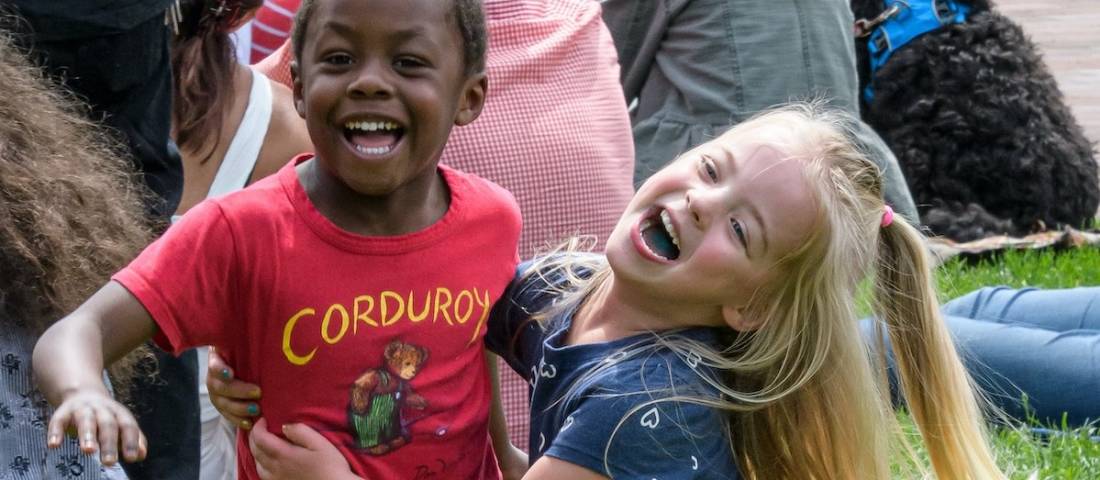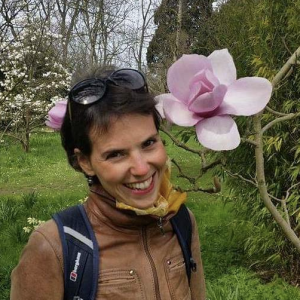We're all feeling overwhelmed by the impact the pandemic has had on our lives but for young children, who may not even remember life before Covid, adjusting to "normality" can be even tougher. Our Education Lead Laura House has some great practical tips and reassuring words on smoothing out the transition...
Teach children to embrace change as a natural part of life
Over the last year we’ve all experienced extreme change. Our routines have been in constant flux; and the same goes for young children who have been impacted by school and nursery closures, and unable to see their friends or grandparents. Depending on how old they are, they will have different levels of understanding as to what exactly is going on. But it’s inevitable that they’ll notice a change if you’re going back to work, a shift in their routine (if they’re going back to school or nursery regularly) and that they’re seeing other people more often.
Change is a constant in life, so by teaching children techniques to be resilient and even embrace change as a natural part of life, we're preparing them well for the many changes the future will have in store for them.
Where possible, very young children will benefit from lots of prior warning about changes that are around the corner, as this helps them to prepare - 'Tomorrow we're going to see Grandma for the first time in a long time!' 'Next week you're starting nursery again. What games would you like to play with your friends at nursery?'
Many children benefit from visual representations of their routine - you can make these together at home, by drawing pictures of what they can expect on each day of the week. This can help them look ahead to seeing a friend on the weekend, or see how long it is until the day that Mum has to go back to work, or when they can finally go on that trip to the zoo!
Practice activities that help everyone to feel calm
Regular time outdoors is a tonic for everyone. Whether that’s playing in the garden or going to the park to walk, kick a ball, or throw a frisbee.
Mindfulness and breathing exercises are also valuable practices for young children, as well as for ourselves, teaching them good self-care habits that will help them cope with the stresses and ups and downs that are part and parcel of life. To make these exercises fun, you can ask them to hold a feather in a hand by their mouth and watch how it gently moves as they breathe slowly in and out. Or, get them to lie on the floor with their knees up and put a teddy on their tummy: ‘Watch him rise up and down as you breathe in and out!’. A big family colouring session is also a great way to quietly and mindfully connect, relax and spend some peaceful time together, as the pace of life starts to pick up again.
Keep an eye on changes in the seasons
There’s something reassuring about the pace of nature, that gets on with things and completes its seasonal cycles at its own speed regardless of what’s going on in the world. To help both yourself and your children relax and stay grounded over the coming weeks, get outdoors together and observe the changing seasons. Breathing fresh air and walking amongst nature can help you to feel calm and get a sense of perspective.
To keep the children busy, you can look out for blossoms appearing on trees, or spot daffodils or tulips in the park. You could even plant some sunflower seeds in pots, and observe them as they start to grow. You could also encourage them to keep a nature diary of the weather: what kind of clouds are there today? Has it been sunny all day? Stick a thermometer on the window to notice the little things like a rise in temperature. Small and gradual changes in nature can help your children to feel grounded, relaxed and connected to the world around them as the pace of life picks up.
Have props or materials that children can use in role play to work through their emotions
Having some props around the house that children can use as part of role play games is a good way to encourage them to work through their feelings. These can be anything, so long as they enjoy playing with them. For example, a toy doctors’ set, a ‘school’ for dolls, or a family of teddies that they can have adventures with when mummy and daddy teddy are at work, can all help them connect with (and make sense of) what’s happening in the world around them.
Wind down and gently broach emotions through reading
There’s nothing quite like the feeling of relating to a character in a book and seeing the way you feel reflected back at you. Young children need this, too. To help children relax, wind down, and understand the way they’re feeling at the moment, read books with them that bring some of their emotions to life in a way that makes sense to them. Good places to start might be the likes of Colour Monster or Ruby’s Worry, but there are lots of great options out there that speak to all kinds of feelings and experiences.
Reading with your children around the same time every day can also help to give them a sense of calm and routine when lots seems to be changing and moving around them.
Take things slow
As lockdown eases, life will inevitably get busier again. Seeing friends and family, going back to work and school, and socialising more frequently are all going to be hugely beneficial to us all. However, rushing back to ‘normality’ too quickly and overbooking yourself and your children could lead to all of you feeling overwhelmed and exhausted.
I would recommend taking things slowly at first, making an effort (where possible) to hold on to some elements of your lockdown routine. For example, if you’ve started going for walks before teatime over lockdown, or have started doing a special ‘treat’ living room picnic tea at the weekend, keep this going for a few weeks even when lockdown eases so that your children don’t experience too much change all at once. However tough the last year has been, it has inevitably meant we’ve spent more time together as a family. Consider if there are actually some aspects of lockdown life that worked well for your family and that you’d like to keep.
Create special moments of connection with your children, away from the hustle and bustle of the outside world
Lots of parents feel as though they’ve connected and bonded with their children even more over lockdown. To help ease the transition out of lockdown - and to ensure you stay connected as a family - you could try to create small moments of fun that are just for you and your children.
A few ideas of things you could do could include hosting a candlelit breakfast featuring their favourite breakfast treat, reading a fun poem or two at tea time, or placing a twig of colourful blossoms or flowers that they found on a walk in a little vase. They might wear their new yellow shoes and you might wear your favourite coat next time you go on a walk; or maybe you treat everyone in the household to some colourful rainbow socks or their favourite chocolate bar. You could all share a bowl of popcorn in front of a family film that you watch all together. A fun one is putting a drop of food colouring in the bath to make the water pink.
These simple yet fun experiences will turn into lasting memories for your children and yourself. When they’re older they probably won’t remember the intricacies or stresses of the pandemic, or the anxieties and pressures that came with the easing of lockdown, but they will remember their favourite tea time rituals, their hilarious bathtimes and the precious moments you shared as a family. So try to show children that even in time of change, there are always moments of joy that we can pause and relish together.
Photo by Islander Images on Unsplash







